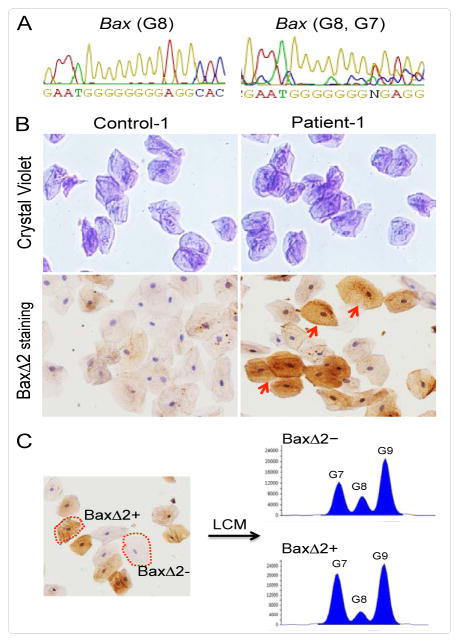Detection of Bax Microsatellite Mutations and BaxΔ2 Isoform in Human Buccal Cells.
Journal of cell science & therapy
Pub Date : 2015-09-01
Epub Date: 2015-07-17
DOI:10.4172/2157-7013.S8-002
引用次数: 5
Abstract
Loss of the pro-apoptotic Bcl-2 family protein Bax occurs in ~50% of hereditary nonpolyposis colorectal cancer (HNPCC) due to microsatellite instability (MSI). Recently, we found that some of the "Bax-negative" MSI tumor cells contain a functional Bax isoform, BaxΔ2, which sensitizes cells to selective chemotherapeutics. Here we show the detection of Bax microsatellite mutations and expression of BaxΔ2 proteins in human buccal cells. Our study provides a sensitive and non-invasive approach and a potential clinical application in diagnosis and treatment of MSI colon cancer patients.

人颊细胞Bax微卫星突变及BaxΔ2亚型的检测。
由于微卫星不稳定性(MSI),约50%的遗传性非息肉性结直肠癌(HNPCC)发生促凋亡Bcl-2家族蛋白Bax的丢失。最近,我们发现一些“Bax阴性”的MSI肿瘤细胞含有一种功能性的Bax异构体BaxΔ2,它使细胞对选择性化疗药物敏感。在这里,我们展示了Bax微卫星突变的检测和BaxΔ2蛋白在人颊细胞中的表达。本研究为MSI结肠癌患者的诊断和治疗提供了一种灵敏、无创的方法和潜在的临床应用。
本文章由计算机程序翻译,如有差异,请以英文原文为准。
求助全文
约1分钟内获得全文
求助全文

 求助内容:
求助内容: 应助结果提醒方式:
应助结果提醒方式:


